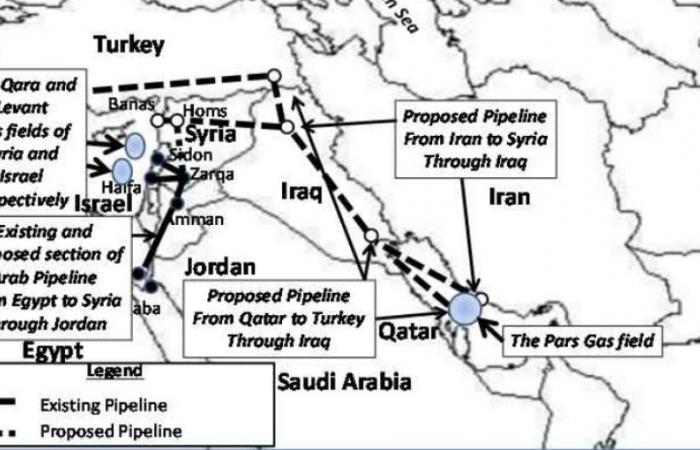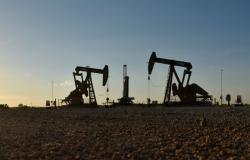The construction of a gas pipeline linking Qatar, in the Gulf, to Turkey to end in Europe is resurfacing following the collapse of the Syrian Baath regime.
If built, the Qatar-Turkey mega pipeline would enable a major market development: European Union markets could receive Qatari gas, from the world’s largest natural gas field, via a hub in Turkey. Qatar has the third largest gas reserves in the world, behind Russia and Iran.
On December 10, Türkiye Today reported new prospects for the Qatar-Türkiye gas pipeline. In 2009, this project was reportedly rejected by former Syrian President Bashar al-Assad, who took refuge in Russia last weekend, and has not been on the agenda since. At the time of Assad’s rejection, some reports indicated that his regime had decided against the pipeline to protect the interests of its ally Russia, which was then Europe’s main natural gas supplier. On several occasions, Russia has defended the idea of a gas pipeline linking Iran to Syria via Iraq.
If a pro-Turkey administration is installed in Syria, the words of the former leader of Turkish ally Qatar, former Emir Sheikh Hamad bin Khalifa Al Thani, may be remembered, who said: “We are looking forward to having a gas pipeline from Qatar to Turkey.”
The initial concept for the $10 billion, 1,500 kilometer Qatar-Turkey gas pipeline envisaged that gas from the Qatari portion of the vast North Dome/South Pars field in the Gulf (the deposit is shared with Iran) would be transported to Turkey, then to Europe. It was to reach Turkey via Saudi Arabia, Jordan and Syria.
Qatar’s natural gas reserves in the Gulf have been estimated at around 896 trillion cubic feet (25.4 trillion cubic meters), equivalent to 14% of the world’s known gas reserves. As it stands, Qatari gas arrives in Europe in the form of expensive cargoes of liquefied natural gas (LNG) transported by tankers.
On December 10, the Turkish Minister of Energy and Natural Resources, Alparslan Bayraktar, was asked by local media, after a cabinet meeting, about the chances of reviving the forgotten Qatar-Qatar gas pipeline project. Turkey. “For a Syria that has achieved unity and stability, why not? he replied, adding: “If that happens, the route must be safe. Hopefully that will be the case, because that’s what we want.”
Turkey, which does not have significant gas reserves, has in recent years stepped up efforts to create a gas center that would receive gas from suppliers such as Russia, Azerbaijan, Turkmenistan and Iran and would re-export it to third-party markets.






